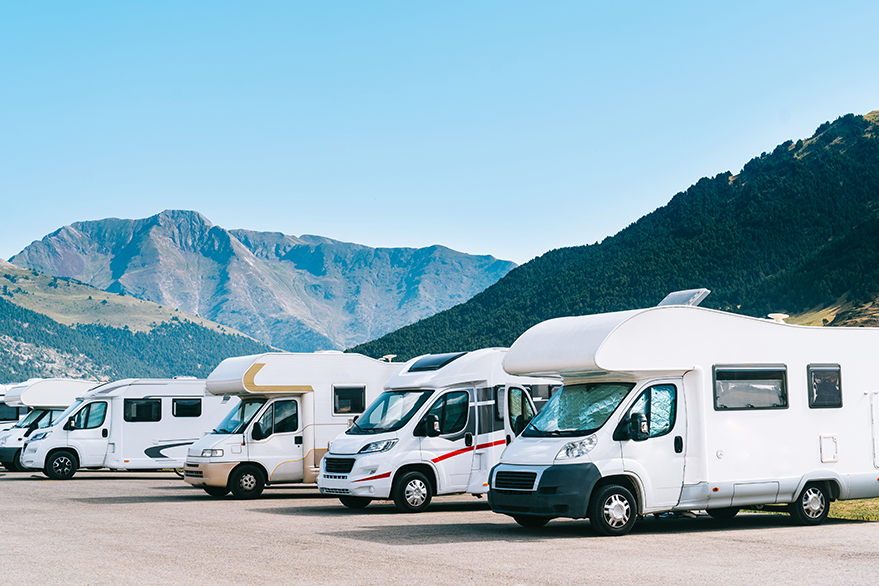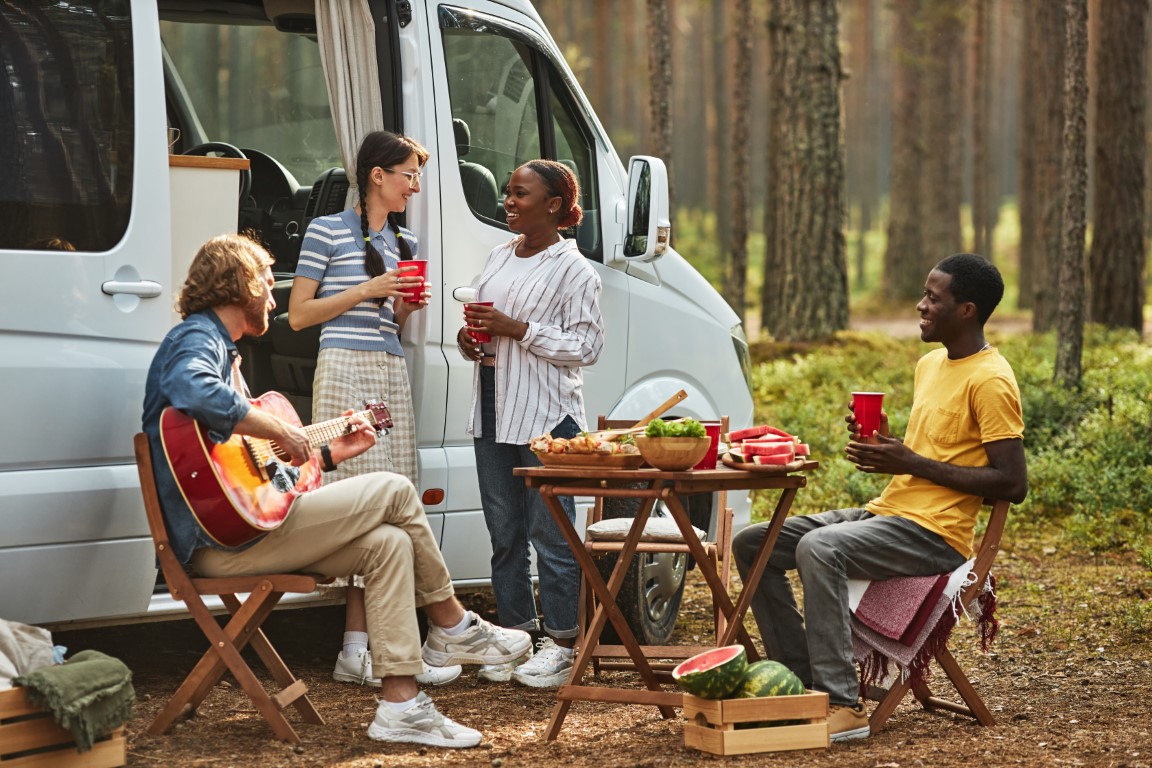Campervan vs Motorhome: How Do You Decide?
Can't choose between a campervan and a motorhome? This blog from InsureMy looks at the pros & cons of each to help you pick which is best placed to scratch that adventurous itch.

Campervan vs motorhome. Which is best?
It’s tough to say with certainty whether a campervan or motorhome is better for you. Either can fulfil a long list of requirements but in different ways. Before we dive into the hows and whys, here’s a summary of what we’ll cover so if you want to jump ahead, you can.
What’s the difference between a campervan and a motorhome?
There are many obvious similarities between a campervan and a motorhome, but there are also many differences. For a start, a campervan tends to be much smaller than a motorhome, with more basic facilities for sleeping, cooking and washing - often just a folding bed, sink, fridge and gas hob, or two.
A motorhome is much more of a home on wheels, with more space and facilities, including kitchen appliances, a bathroom and, depending on size, a number of sleeping berths and a sizeable living space.
What are the pros and cons of a motorhome?
What are the pros and cons of a campervan?
Protecting your campervan or motorhome
Regardless of whether you go for a motorhome or campervan, thinking about security and storage are major considerations, particularly with motorhome and campervan thefts on the rise.
A motorhome may be more challenging to protect as they are harder to store (simply owing to their size) and can’t double as the family car, meaning it could spend a lot of time sitting on the road or driveway. You may want to think about more secure motorhome storage options , such as a dedicated storage site. A campervan is easier to leave on the street or driveway, especially if you’re using it every day.
Investing in additional security features will not only make it harder for your motorhome or caravan to be stolen, they could also save you money on your insurance premiums.
Insuring your motorhome or campervan
While security plays an important part in protecting your vehicle, comprehensive motorhome or campervan insurance will give you peace of mind that you’re covered for every scenario.
To understand how much it might cost to insure your campervan or motorhome, read our cost of motorhome insurance or cost of campervan insurance guides.
With InsureMy, you can compare quotes from specialist insurers and get the lowest price guaranteed. Get a quote for campervan insurance or motorhome insurance in less than two minutes today.





